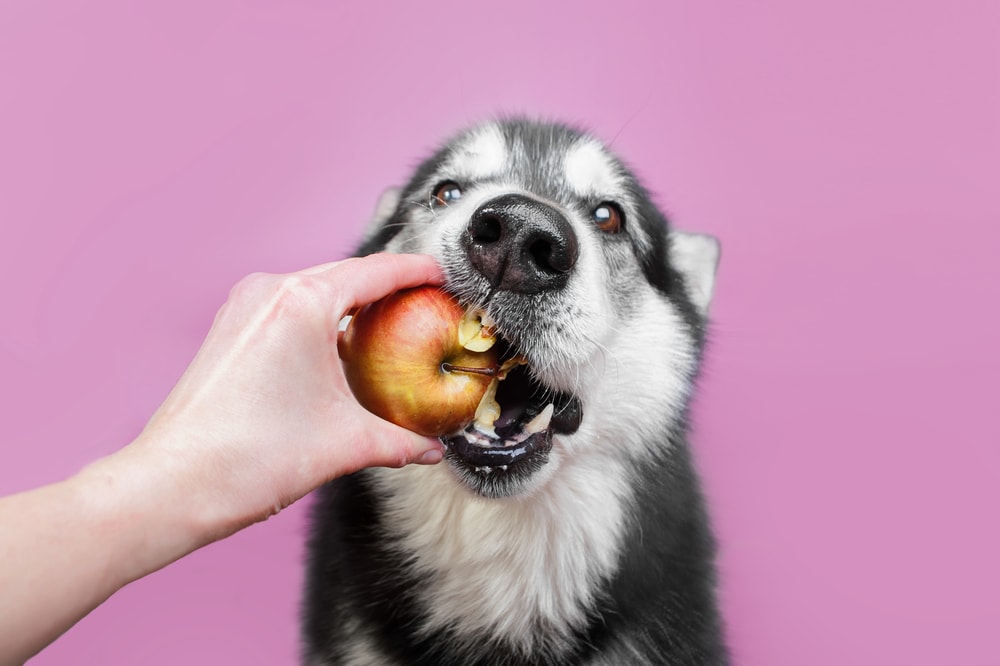Hey Ollie blog readers! We’re offering you an exclusive 60% OFF your starter box! Try now!
Limited ingredient dog food is a trendy term in the pet food space. Some pet owners turn to a limited ingredient diet (sometimes called a LID) to address health concerns like itchy skin, behavioral issues, or digestive problems which they link to food allergies. The concept behind limited ingredient dog food is that it restricts your dog’s diet so you can isolate and understand what might be causing the trouble. Sounds good in theory—but in practice, does limited ingredient dog food really work?
What is Limited Ingredient Dog Food, Anyway?
A limited ingredient diet typically contains one protein source (often a less common one like duck or kangaroo) and a single carbohydrate (like corn or potatoes). However, some kibble brands market themselves as limited ingredient dog foods, meaning that they contain fewer additives than other recipes. In the middle of these two extremes: a limited ingredient dog food can mean a recipe that focuses on whole foods with a single meat source in the mix.
All of this is to say that like much of popular dog food lingo, “limited ingredient” has an extremely loose definition if it really has a definition at all. If you are considering this sort of diet for your dog, it’s important to understand that not all “limited ingredient dog foods” are created equal.
The Risks of a Limited Diet for Dogs
The primary reason dog owners look for a limited ingredient dog food is that they think their dog is suffering from a food allergy. Gary Weitzman, DVM, President of the San Diego Humane Society and author of the book The Complete Guide to Pet Health, Behavior, and Happiness warns against these sort of assumptions. “A very small percentage of dogs actually have food allergies,” he says. By treating your dog with a limited diet, you run the risk of not addressing underlying issues like “horrible skin allergies or gastrointestinal issues,” says Weitzman.
Putting your dog on a strict diet without a good medical reason also takes away a potential source of puppy joy and could even put their health at risk. Weitzman says, “Food is one of the things that dogs love the most!” Additionally, very restrictive diets run the risk of creating nutritional deficiencies in dogs. This is especially common when pet parents try to make their dog’s food at home.
If you are thinking of trying a rare protein source, do so with caution says Shawn Messonnier, DVM, author of The Allergy Solution for Dogs. “I do not recommend feeding unique protein sources to pets without food allergies. Not only are most of them quite expensive and difficult to obtain, if your dog develops food allergies to any of these unusual protein sources, your choices of what to feed at that point are severely limited.”
Before you make any dramatic changes to your dog’s food, it’s important to check first with your vet. She will be able to tell you if your allergy concerns are real or if there is another health issue that you might need to address.
The Benefits of Limited Ingredient Dog Food
For dogs who do have food allergies, a limited diet is a good idea. Weitzman says, “Limited diets can be really helpful for the small percentage of dogs who have allergies.” Diagnosing food allergies can be difficult, so it’s critical to work with a professional.
If a limited diet means one based on whole foods, almost all dogs can benefit from meals like that. A fresh, balanced diet can do wonders for your dog’s health. Research shows that diets like the ones from Ollie helps dogs to sleep better, live longer, and to get a shiny coat. (Check out other science-backed benefits). If you are searching for a whole-food diet, make sure that its AAFCO Dog Food Nutrient Profiles for All Life Stages like all of Ollie’s recipes.
The Ollie blog is devoted to helping pet parents lead healthier lives with their pups. If you want to learn more about our fresh, human-grade food, check out MyOllie.com.
Tagged As:

The nutrition your dog needs,
the food they want.

Enjoying our articles? Subscribe our Newsletters and get new articles directly to your inbox
You might also like
26 August 2025
4 MINS READ
Is Fresh Dog Food Safe?
If you’re thinking about switching your dog to a fresh food diet, you might be asking yourself: “Is fresh dog food safe?” It’s a smart question—because feeding fresh means you’re worki…
by Ollie Pets
26 August 2025
4 MINS READ
How Do I Know How Much Fresh Dog Food To Feed?
If you’ve switched your pup to fresh food, you’re probably wondering: “How much fresh dog food should I feed?” It’s not as simple as scooping kibble from a bag—fresh food is more nutri…
by Ollie Pets
26 August 2025
4 MINS READ
Do I Need To Cook Fresh Dog Food?
If you’ve just started exploring fresh dog food, you might be wondering: “Do I need to cook it?” or “Is it raw or already cooked?” It’s a common question, especially with so many pet f…
by Ollie Pets







